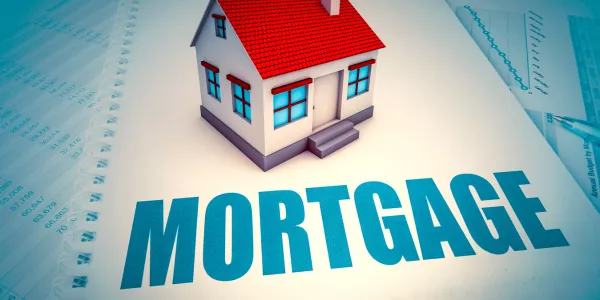Purchasing a house is more than a financial transaction; it's a journey into a new chapter of life, filled with dreams, aspirations, and a sense of achievement. For many, it symbolizes stability, a personal sanctuary, and a place where memories are created and cherished.
But beyond the emotional resonance, buying a house is also one of the most significant financial decisions one can make, requiring careful planning, thoughtful decision-making, and a clear understanding of the long-term commitment it entails.
If you're questioning whether owning a home is within your reach, rest assured, you're in good company. Achieving homeownership is indeed a journey, yet it's more attainable now than it has ever been.
Wondering what it takes to purchase a house? Chances are, it's less than what you might anticipate. Stay with us to learn the basics on buying a house.
Assessing Financial Readiness
Embarking on the journey to purchase a home begins with a critical assessment of your financial readiness. This step is foundational, ensuring that you're not only able to buy a house but can also sustain homeownership in the long run. Here's what assessing your financial readiness entails:
Savings
Examine your savings to determine if you have enough for a down payment, closing costs, moving expenses, and an emergency fund.
Income
Evaluate your regular income to ensure it's stable and sufficient to cover monthly mortgage payments along with other living expenses.
Existing Debt
Consider your current debts, including credit cards, car loans, and student loans. Your existing debt will influence your ability to secure a mortgage.
Understanding Your Credit Score
Your credit score is a key factor in determining your eligibility for a mortgage and the interest rate you will receive. A higher score can lead to better loan terms. Obtain your credit report from major credit bureaus to check for any errors or areas that need improvement.
Calculating Debt-to-Income Ratio (DTI)
DTI is a comparison of your monthly debt obligations versus your gross monthly income. It's a critical metric lenders use to assess your capacity to manage monthly payments. A lower DTI ratio (typically 43% or less) is favorable in the eyes of lenders. It demonstrates that you are not overly burdened by debt and are more likely to manage additional mortgage payments effectively.
Planning for Down Payment and Closing Costs
Down Payment
This is typically the largest upfront cost in buying a home. Depending on the type of mortgage, the required down payment can range from 3% to 20% of the home’s purchase price.
Closing Costs
These are additional fees associated with processing the mortgage, which can range from 2% to 5% of the loan amount.
Budgeting for Additional Homeownership Costs
Beyond the mortgage payment, homeownership includes property taxes, home insurance, maintenance costs, and potentially homeowners association (HOA) fees. It's important to create a budget that accounts for these ongoing expenses to avoid financial strain after moving into your new home.
Emergency Funds
An often-overlooked aspect of financial readiness is having an emergency fund. This fund can cover unexpected expenses such as home repairs or income loss, ensuring that your mortgage payments are not jeopardized.
Future Financial Goals and Stability
Consider your long-term financial goals and how a home purchase fits into them. Are you planning for significant life changes like a career shift or growing your family? These can impact your financial stability.
Seeking Professional Advice
Finally, consider consulting with a financial advisor or mortgage professional. They can provide personalized advice and help you understand different mortgage options and what you can afford.
Getting Pre-Approved for a Mortgage
Securing a mortgage pre-approval is an essential step in the journey of buying a house. It not only helps in understanding how much you can afford but also strengthens your position as a buyer. Here’s what the process of getting pre-approved for a mortgage entails:
Understanding Pre-Approval
Pre-approval is a lender’s conditional commitment to offer you a specific loan amount, based on an evaluation of your creditworthiness and financial health. It is different from pre-qualification, which is a more general estimate of how much you might be able to borrow.
Gathering Necessary Documentation
Lenders typically require documentation to verify your income, assets, debts, and credit history. Common documents include recent pay stubs, tax returns, bank statements, and identification documents.
Loan Shopping
It’s recommended to shop around with multiple lenders to compare pre-approval offers. Different lenders may offer varying interest rates and terms. Comparing offers can help you find the best mortgage terms and interest rates for your situation.
Pre-Approval Letter
Once pre-approved, you'll receive a pre-approval letter. This letter is typically valid for 60 to 90 days. It shows real estate agents and sellers that you are a serious and capable buyer, giving you an edge in competitive housing markets.
Using Pre-Approval Wisely
While pre-approval gives you an idea of your budget, it’s important to stick to a price range that is comfortable for you. Just because you’re approved for a certain amount doesn’t mean you have to spend that much. Consider future financial goals, other expenses, and lifestyle needs when deciding how much to borrow.
Impact on Credit Score
The pre-approval process involves a hard credit inquiry, which can temporarily lower your credit score. However, multiple inquiries from mortgage lenders within a short period are typically treated as a single inquiry for scoring purposes.
Choosing the Right Mortgage Type for You

Selecting the appropriate mortgage is a critical decision before you apply for one, as it depends on your eligibility and financial needs.
Conventional Mortgages
Conventional mortgages are not federally backed. They often conform to limits set by the Federal Housing Finance Agency (FHFA), making them eligible for purchase by Fannie Mae or Freddie Mac. These are known as conforming loans. There are also non-conforming, jumbo conventional loans that exceed these limits. Conventional loans are a favored choice among home buyers, with some available with as little as 3% down.
FHA Mortgages
Insured by the Federal Housing Administration, FHA mortgages are less risky for lenders since the government covers them in case of default. This results in more lenient credit score requirements compared to conventional loans. FHA loans can be secured with a minimum down payment of 3.5%.
VA Mortgages
Specifically for veterans, active-duty service members, reservists, National Guard members, and certain surviving spouses, VA loans come with unique benefits like no down payment requirement. They are guaranteed by the Department of Veterans Affairs. For instance, Rocket Mortgage offers VA loans with credit scores starting at 580.
USDA Mortgages
USDA loans are tailored for individuals in rural and suburban areas, backed by the government. They offer the advantage of no down payment but require the property to be in an eligible area and the borrower to meet certain income criteria. However, some lenders, like Rocket Mortgage, currently do not offer USDA loans.
Selecting the Ideal Real Estate Agent for Your Home Purchase
When buying a house and obtaining a mortgage, involving multiple professionals is crucial. A real estate agent acts as your advocate in the home buying process. They ensure your interests are prioritized by seeking out properties that align with your preferences, arranging house showings, crafting offer letters, and conducting negotiations on your behalf.
Typically, employing a real estate agent won’t cost you anything as a buyer. In most instances, the seller is responsible for paying the commission of the buyer’s agent, commonly around 3% of the home’s sale price.
Your real estate agent is your guide through the intricacies of home purchasing. They not only show you potential homes but also assist in drafting offers and negotiating terms. Agents, with their expertise in local real estate markets, can also provide valuable advice on appropriate offer amounts for properties.
House Hunting
While browsing property photos online is beneficial, it doesn't replace the experience of physically touring homes and familiarizing yourself with the neighborhood and its facilities. Sometimes, choosing the right community can be as crucial, if not more so, than the house itself.
When looking for a house, consider various factors like price, size, the condition of the home and potential repair needs, access to public transport, bedroom count, amenities like a backyard or pool, local entertainment, school district quality, property value trends, and real estate taxes.
Prioritize these aspects according to your preferences and share this list with your real estate agent, who will then find properties matching your criteria. The search for the ideal home may take time, so remain patient. It's important to view a range of houses to make an informed decision.
Much of this search can be conducted online. Once you've identified a suitable property that meets your needs and budget, you'll be ready to proceed with an offer.
Making an Offer and Negotiations
Upon choosing to place an offer on a house, it's necessary to present a written offer letter. This document should outline personal details such as your name and present address, along with the amount you are proposing to pay for the property. Additionally, it will specify a timeframe within which the seller must reply to your offer.
Initial Proposal
Based on the home’s value, your budget, and market conditions, you or your agent will draft an initial purchase offer. This includes the price you're willing to pay and any conditions or contingencies, like a home inspection or financing.
Earnest Money
Along with the offer, you'll typically include earnest money, a deposit demonstrating your commitment, which usually ranges from 1% to 3% of the purchase price.
Negotiation Process
Counteroffers: Sellers may respond with a counteroffer, adjusting terms like price, closing date, or contingencies. This can lead to several rounds of back-and-forth negotiation.
Home Inspection and Appraisal
The Home Inspection and Appraisal are crucial steps in the home-buying process, serving as safeguards for your investment. A home inspection, conducted by a professional inspector, assesses the property's condition, identifying any potential repairs or issues, such as structural problems or outdated electrical systems. This step allows you to renegotiate or even withdraw your offer based on the findings.
Meanwhile, an appraisal, usually required by the lender, determines the property's market value, ensuring that the price you're paying is fair and aligns with the home's actual worth. An appraisal below the offer price can affect loan approval and may require renegotiation of the sale price. Both steps are instrumental in making informed decisions and securing a sound financial investment in your future home.
Finalizing the Mortgage
After the home inspection and appraisal are complete and any contingencies are met, you'll submit any additional required documentation to your lender for final loan approval. This phase may include a detailed review of the property, your financial situation, and the loan terms.
Once the lender approves your mortgage, you'll proceed to sign the final loan documents, legally committing to the mortgage terms and responsibilities.
Closing the Sale
During this phase, all parties involved convene to sign the necessary legal documents. As the buyer, you'll review and sign the closing disclosure, mortgage note, and other related paperwork, solidifying your ownership and mortgage agreements.
This is also when you'll pay any remaining closing costs, typically ranging from 2% to 5% of the home's purchase price, which covers lender fees, title insurance, and other processing expenses. A final walkthrough of the property is often conducted just before the closing to ensure everything is in the agreed-upon condition.
Once all documents are signed and payments made, the keys are handed over, officially marking your transition into homeownership.
Post-Purchase Considerations
Securing homeowners insurance is crucial for protecting your new investment against unforeseen events. Additionally, planning your move involves organizing logistics, setting up essential utilities, and possibly making immediate home improvements.
It's also important to establish a long-term budget that accounts for ongoing expenses such as property taxes, maintenance costs, potential homeowners association (HOA) fees, and emergency repairs. Staying proactive in these areas helps maintain the home's condition and value, while also ensuring a comfortable and financially sustainable living environment.
People also ask
Is a Real Estate Agent Always Necessary?
While it's feasible to buy a house without an agent, it’s generally not advised, particularly for those who are navigating the process for the first time. The complexities and emotional aspects of buying a house can be overwhelming. An agent's presence simplifies understanding the market, submitting a legally solid offer, and ensuring you don’t overpay for the property.
How Much Down Payment Do I Need to Buy a House?
The amount of down payment required varies based on the type of mortgage and the lender's requirements. Traditionally, a down payment of 20% has been the standard to avoid private mortgage insurance (PMI). However, there are several loan programs available that allow lower down payments.
For example, FHA loans can have down payments as low as 3.5%, and some conventional loans offer options for 3% down. Veterans may qualify for VA loans that don't require any down payment. It's important to consider that a smaller down payment might mean higher ongoing mortgage payments and additional costs for PMI.
How Do I Know Which Mortgage Type Is Right for Me?
Choosing the right mortgage type depends on several factors, including your financial situation, how long you plan to stay in the home, and your risk tolerance. Fixed-rate mortgages offer stability with a constant interest rate and monthly payment throughout the life of the loan, making them suitable for those planning to stay in their home long-term.
Adjustable-rate mortgages (ARMs) may start with a lower interest rate but can change over time, which could be beneficial for those planning to move or refinance in a few years. Government-backed loans, like FHA, VA, or USDA loans, offer benefits like lower down payments or no down payment, but they also have specific eligibility requirements.
Consulting with a mortgage advisor can help you understand the pros and cons of each type based on your individual circumstances.

 Marcio Vasconcelos
Marcio Vasconcelos





